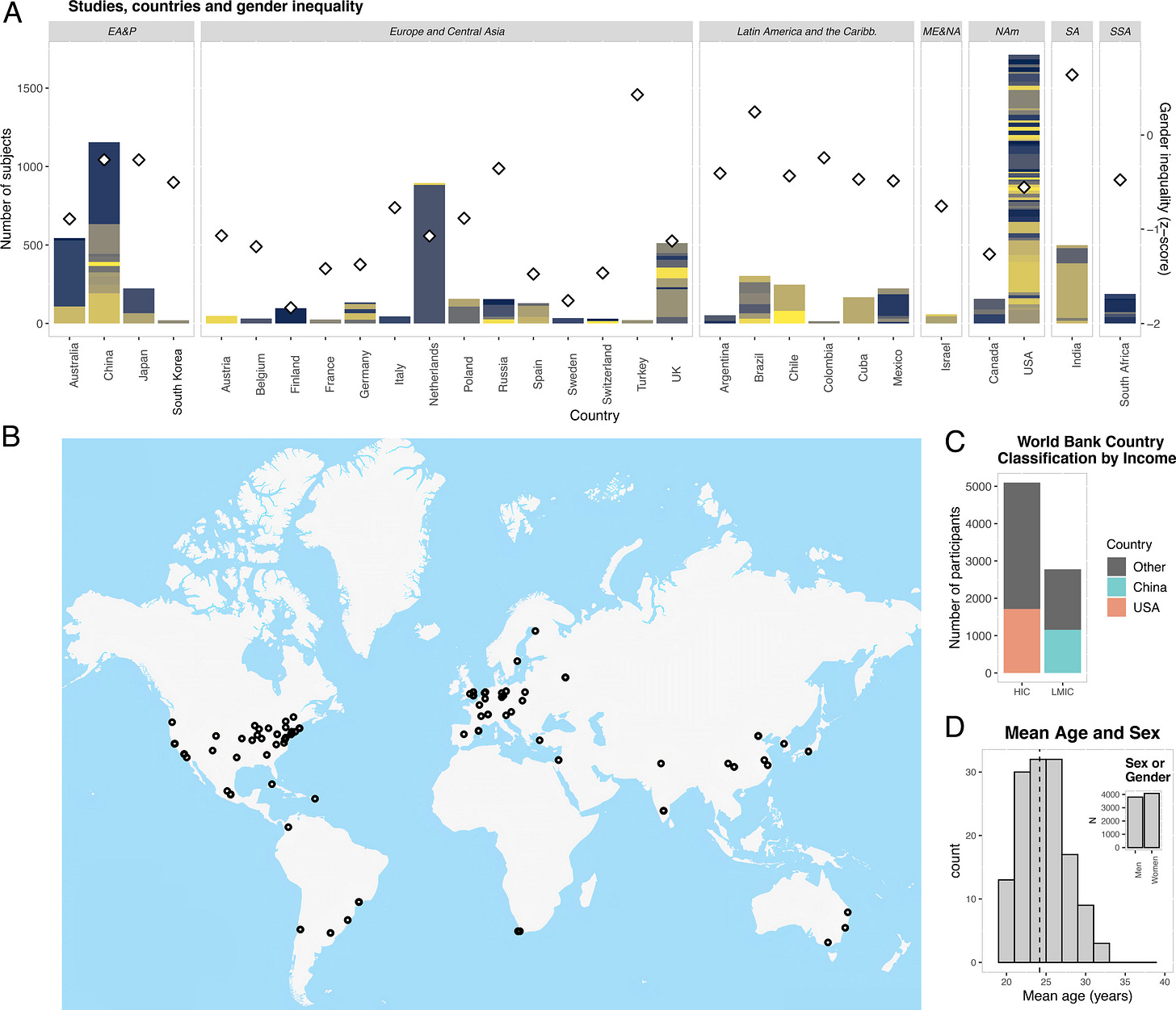Does bullying affect our brains?
When rodents, pigs and macaques are dominated and defeated, they exhibit hormonal and behavioural changes. These include impaired corticosterone response, less testosterone, more plasma epinephrine, and even self-administration of cocaine. Witnessing social defeat in other mice and rats also seems to trigger physiological stress, anxiety and depression. Scientists call this ‘social defeat’.
Might harassment, humiliation and bullying have similar effects in humans? Studies in this field typically involve experiments: creating stress then examining the effects (like social withdrawal and less exploratory behaviour).
But what about real world oppression?
André Zugman and colleagues have a fascinating new paper in PNAS, examining if culture affects our brains. They pair indices of gender inequality with a dataset of nearly 8000 MRI scans from 29 different countries. Cortical thickness is their primary focus, since this is associated with general intelligence.
What do they find?
In relatively gender equal countries, there is no sex difference in cortical thickness. But in patriarchal countries, there are systematical differences in cortical thickness in the right hemisphere. This result holds controlling for GDP per capita.
I corresponded with one of the authors. Their hypothesis (which they will test more fully) is that ‘social defeat’ suppresses women’s cognitive development.
Of course, there are other possible factors. Boys may also benefit from better nutrition, greater freedoms to explore and permission to be rebellious. Either way, patriarchy seems to cripple women’s brains.
I share their results below.
There may also be subnational heterogeneity. In Southern India (where women move more freely in their communities and eat together with men), boys and girls get similar scores in mathematics. But Das and Singhal (2022) find that in poorer, patriarchal states, boys get top scores.







Link to paper.
https://www.pnas.org/doi/10.1073/pnas.2218782120